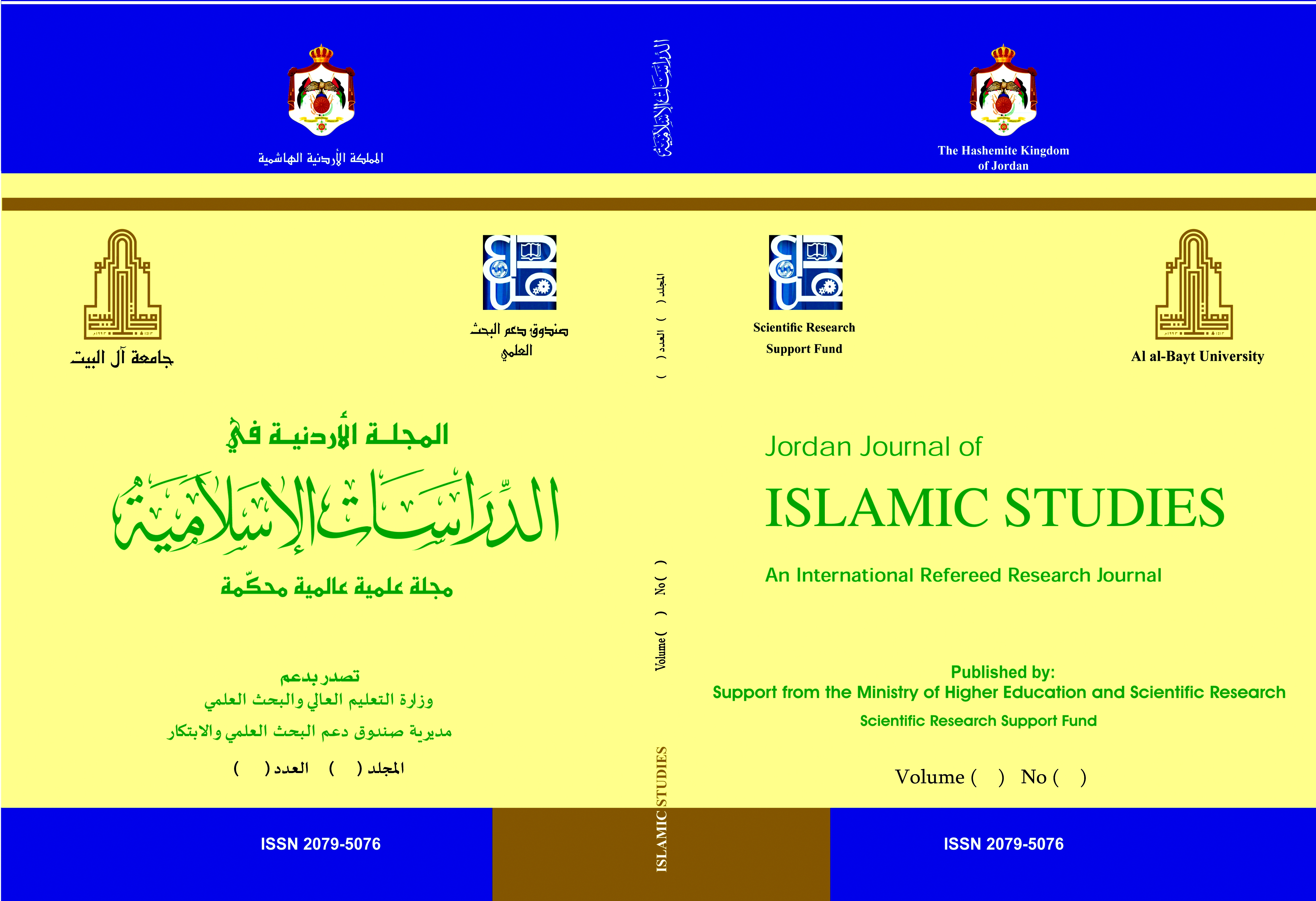Jordan Journal of Islamic Studies

Abstract
تناول هذا البحثُ بالدراسة أحدَ شروط العلة وهو "ألا تعود العلة المستنبطة على أصلها بالإبطال" وكان أحد الأسباب الدافعة لدراسة هذا الشرط عدمَ وضوح دلالته على معنى الإبطال، من حيث تكييفه الأصولي، وشموله للتعميم والتخصيص والرفع الكلي، واطراده في أبواب العبادات والمعاملات.
وقد توصل الباحث إلى أنَّ المراد بالإبطال كما قصده الأصوليون شرطًا في العلة المستنبطة هو رفع الحكم كليًا بلا إمكان لعود العمل به؛ المعبر عنه أصوليًا بالنسخ، لكنّه إنْ كان تطبيقًا لقاعدة "الحكم يدور مع علته وجودًا وعدمًا" فلا يوجد ما يمنع منه؛ وهو بذلك يتميز عن التخصيص بالعلة المستنبطة، وعن النسخ بالتعليل؛ أما تميزه عن التخصيص بالعلة المستنبطة؛ فلأن التخصيص رفعٌ جزئي للحكم، وأما تميزه عن النسخ؛ فلأنه ليس بالرفع الكلي الذي لا مجال لعودة العمل به؛ وعليه فإنّ الإبطال محل البحث يُكيف أصوليًا على أنه إعمالٌ لقاعدة الحكم يدور مع علته وجودًا وعدمًا.
أما فيما يتعلق بآراء الأصوليين في الشرط فلم يقف الباحث على من قال بعدم مشروطيته، لذا فإن الباحث في نقاشه للشرط خلص إلى معنى يجعل منه شرطًا محلَ إجماع إذا فُسر بالنسخ، وخلص إلى رأي يفيد بأنه يمكن استنباط معنى يعود على النص بالإبطال إذا كان تطبيقًا لقاعدة "الحكم يدور مع علته وجودًا وعدمًا لكن بشرط أن يكون الاستنباط قويًا، وفي باب المعاملات باعتبار أنَ المعاني هي المغلبة فيه بخلاف باب العبادات، وقد استخدم الباحث المنهج الوصفي في نقل أقوال العلماء في القضايا المبحوثة، والمنهج التحليلي في نقد بعضها، وكذلك في اقتراح الرأي الذي توصل إليه الباحث.
الكلمات المفتاحية: العلة، الإبطال، التعميم، التخصيص، النسخ.
This research studies one of the conditions of the legislative cause, which is “that the inferred cause does not invalidate the rule of the legislative text.”
One of the reasons that motivated the study of this condition was the lack of clarity on the significance of the meaning of invalidation in terms of its adaptation, its coverage of generalization, specialization, and total abrogation, and its sustainability in worship and transactions. The researcher has concluded that what is meant by invalidation is to stop the ruling completely but with no possibility of re-implementing it. However, if it was an application of that “the rule takes place with the presence and non-existence of its cause,” then there is nothing that prevents it. Thus, it is distinguished from exclusion and also distinguished from abrogation.
The reason why it is distinguished from exclusion is that the exclusion is a partial invalidation of the ruling, and also distinguishes from abrogation because invalidation is not a complete suspension in which there is no return to the ruling; Accordingly, the invalidation that is the subject of the research is fundamentally classified as an application of the rule of judgment that revolves with its cause of existence and non-existence.
With regard to the opinions of fundamentalists on the condition, the researcher did not take into account those who said that the condition is not necessary; nevertheless, the researcher subjected the condition to discussion and concluded with the opinion that it is possible to elicit a reason that causes the ruling to be invalidated if the deduction is strong, and in the context of transactions, given that the reasoning is the most correct in it, unlike the context of worship.
The researcher used the descriptive method in conveying the opinions of scholars and the analytical method in criticizing some of them and suggesting the opinion he reached. Keywords: Cause, Invalidation, Generalization, Exclusion, Customization, Abrogation.
Recommended Citation
Ibrahim, Tayseer Kamel
(2022)
"استنباط معنى يعود على النص بالإبطال دراسة أصولية نقدية Elicitation a meaning that invalidates the legislative religious text: A critical study in the science of asul alfiqh,"
Jordan Journal of Islamic Studies: Vol. 18:
Iss.
4, Article 12.
Available at:
https://digitalcommons.aaru.edu.jo/jois/vol18/iss4/12

